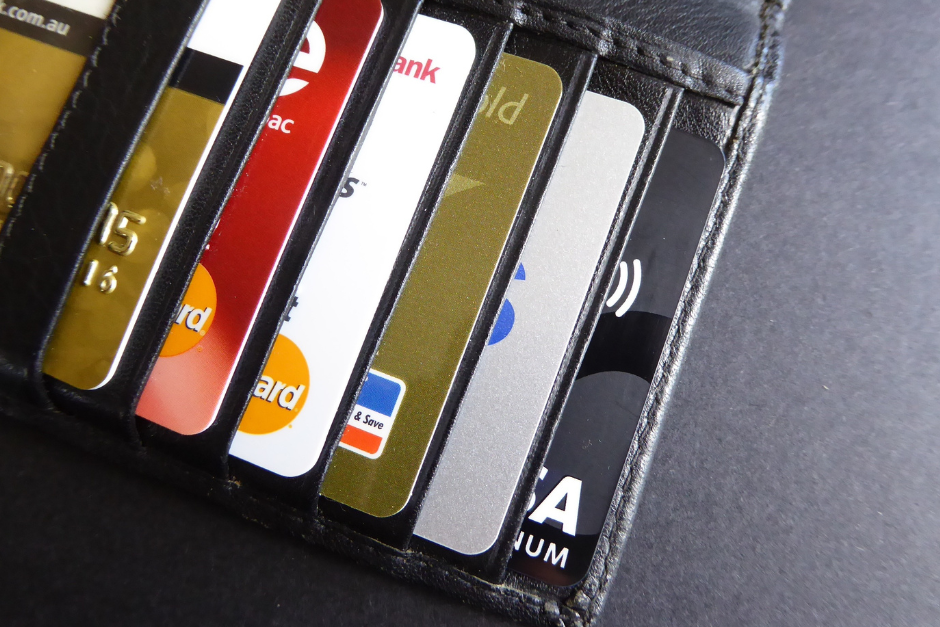
IDIQ is not a bank, lender, tax advisor, or insurance company. Offers made on this page may come from our advertising affiliates, and we may earn a commission when you purchase products or services.
There are many credit cards to choose from, which might be overwhelming. To select the right one for you, it's crucial to understand the different types available. This blog reviews four basic types of credit cards, each with its unique features and benefits.
Five Basic Types of Credit Cards
Balance Transfer Credit Cards
If you have existing credit card debt and are looking for a way to save on interest, a balance transfer credit card can be a good solution. These cards allow you to transfer high-interest balances from other credit cards to a new card that typically has a low or 0% interest rate for a limited amount of time.
By taking advantage of a balance transfer offer, you could save money on interest which can help you pay off your debt faster. However, it’s important to consider balance transfer fees, which often range from 3% to 5% of the amount transferred. Additionally, once the introductory period ends, your remaining balance may be subject to a higher interest rate.
These cards are best for people who are committed to paying off their debt within the promotional period, to avoid getting back into the same situation of high-interest credit card debt.
Find the Right Balance Transfer Credit Card for You:
Best Balance Transfer Credit Cards

Reward Credit Cards
Rewards credit cards let you earn free rewards every time you use your card for eligible purchases. These cards typically offer points, miles, or cash back for every dollar spent.
Some rewards cards even offer bonus points for purchases such as gas or groceries.
With rewards credit cards, you can earn free travel, merchandise, or statement credits that can help offset your monthly bills. Many rewards cards come with additional perks, such as travel insurance, extended warranties, and concierge services.
You should also check the redemption value of your rewards, which is how much each point or mile is worth in dollars. Some cards may offer lower redemption values than others, which means you need more points or miles to get the same reward.
Find the Right Rewards Credit Card for You:

Cash Back Credit Cards
Cash back credit cards are an excellent option for those who spend daily on entertainment, gas, groceries, and dining. For any purchase you make that qualifies, you can earn a percentage back on what you have spent.
You can redeem your cashback rewards through gift cards, statement checks, and credits.
The percentage varies depending on the card and the category of the purchase. Some cards may also have rotating categories that change every quarter, or bonus categories that offer higher cashback rates for a limited time.
Some cards may also have rotating categories that change every quarter, or bonus categories that offer higher cash back rates for a limited time.
Find the Right Cash Back Credit Card for You:

Business Credit Cards
Business credit cards are specifically designed for business use and are not intended for personal use. These cards are offered by various lending institutions and can be used by businesses of all sizes to establish a positive credit history and enhance their future borrowing terms.
The application process for business credit cards is similar to that of personal credit cards. Business borrowers can apply with or without an employer identification number, which can be helpful for startups seeking credit. Compared to non-revolving business loans, applying for a business credit card is much simpler because the process is automated.
Business credit cards typically have higher interest rates than traditional loans because the debt is often unsecured, which poses a greater risk to lenders. However, businesses can benefit from the higher credit limits provided by these cards that are often greater than those of consumer credit cards.
Using business credit card can help build business credit. They also enable companies to maintain a clear separation between personal and business expenses.
Find the Right Business Credit Card for You:

Travel Credit Cards
If you are a travel enthusiast, having a travel rewards credit card can be highly beneficial. By using this card to make purchases, you can earn rewards that can be redeemed for various travel-related benefits.
Some travel rewards credit cards offer rewards for purchases that are not related to travel. For example, certain cards may provide the same rewards rate for all types of purchases, while others may offer higher rewards for travel-related expenses.
There are two types of travel rewards credit cards available. The first type is general travel reward credit cards, which are not affiliated with any hotel or airline.
With these cards, you can choose how to redeem your rewards. The second type is merchant and card issuer brand travel rewards credit cards, which can be used like a regular credit card, but any rewards earned can only be redeemed with a specific hotel chain or airline.
Find the Right Travel Rewards Credit Card for You:
Best Travel Rewards Credit Cards

What Type of Credit Card Should I Get?
Visa, Mastercard, American Express, and Discover are the four most popular credit cards. They are issued directly by the companies themselves, and they offer different benefits depending on the card type. Your choice of a credit card entirely depends on your needs and preferences. Here are a few factors to consider when making your choice:
- What are the annual fees?
- Which has a better rewards program that fits your lifestyle – cash back, points, miles, or discounts?
- Which has the highest credit limit?
- Which offers competitive interest rates and better grace periods?
You should also compare the features and costs of different cards before applying for one. The best type of credit card to get depends on your needs and preferences.
How Do I Get a Credit Card If I Don’t Have Any Credit?
Getting approved for a credit card can be challenging if you don't have a strong credit history. Here are some steps you can take to increase your chances of getting approved for a credit card:
Apply for a secured credit card:
A secured credit card requires a security deposit, typically equal to your credit limit. This deposit serves as collateral for the credit card company and reduces its risk. Because of this, secured credit cards are typically easier to get approved for than unsecured cards.
Find the Right Secured Credit Card for You:

Become an authorized user:
You can ask a family member or friend with good credit to add you to their credit card. This can help your credit since their payment history also appears on your credit report. However, be aware that if the primary cardholder misses payments, it can negatively affect your credit score.
Get a co-signer:
You can ask someone with good credit to co-sign a credit card application. The co-signer is responsible for paying off the debt if you can't, which reduces the risk for the credit card company.
How To Help Your Credit History with A Credit Card
Having a credit card can be a useful tool for helping your credit history. Here are some tips on how to use your credit card to help your credit:
Make your payments on time:
One of the most important factors in your credit score is your payment history. Be sure to make your credit card payments on time each month. This shows lenders that you are a responsible borrower and can be trusted to repay debts.
Keep your balances low:
Another important factor in your credit score is your credit utilization, which is the amount of credit you have available compared to the amount you are using. Try to keep your credit card balances low, ideally below 30% of your credit limit. This shows lenders that you are not maxing out your credit cards and can manage your debts responsibly.
Avoid applying for too many credit cards:
When you apply for a credit card, the lender checks your credit history, which can have a temporary negative impact on your credit score. Try to avoid applying for too many credit cards at once, as this can lower your credit score.
Use your credit card regularly:
To earn a positive credit history, you need to show that you can use credit responsibly. Using your credit card regularly, for example, to pay for small purchases like groceries or gas, can help to demonstrate your ability to manage your debts.
Check your credit report regularly
It's important to keep an eye on your credit report to make sure there are no inaccuracies or fraudulent accounts. If you need assistance in monitoring your credit, consider using MyScoreIQ credit monitoring service. MyScoreIQ services offer real-time credit and identity theft monitoring, three-bureau credit reports, FICO® Scores, industry scores, business credit scores, and credit education resources.
Bottom Line
Credit cards are a useful financial tool that come in various types. Choosing the right credit card for your needs, using it responsibly, and making timely payments can help you set up a solid credit history and achieve your financial goals.
Looking for a new credit card? Start here:







